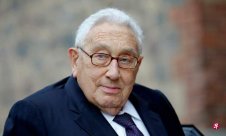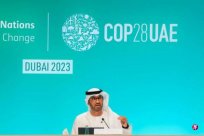Former US Secretary of State Henry Kissinger died at home on November 29 and enjoyed a century of life.The veritable geopolitical scientist, diplomat and politician, the importance and long -term influence in international diplomatic history and political history, even greater than some US presidents.The highlighting era in his life was before half a century. At that time, the United States and the Soviet Union were at the peak of the Cold War. In addition, the Vietnamese war, the Indo -Pakistan war, the oil crisis, and the domestic leftist movement were multiple issues.How to break this deadlock at this time requires high political wisdom and determination.
During this period, he secretly visited China and promoted the strategic decision -making of the Sino -US alliance against the Soviet Union.In 1973, he also won the Nobel Peace Prize for signing a ceasefire agreement in Paris in Paris.In any case, the national policy that is still in contact with China after the disintegration of the Soviet Union and the Soviet Union can be regarded as the long continuation of the Kissinger era to China.
Even after exiting politics, his influence is realized through various academic articles, lectures and foreign visits.To a certain extent, it can be said that China's reform and opening up, that is, the decades of Sino -US relative cooperation, have reflected the extraordinary political heritage of Kissinger's cutting iron curtain.Even at the end of life, Kissinger still believes that the rise of China is inevitable, and the United States should accept this rise.
In terms of political concept, he is a cold and ruthless realist, and will not cause too much ideological differences to hinder his actual actions, nor will it affect political decision -making due to moral concepts.He has no idealist moral cleanliness and values preferences, but is a savvy calculation of real interests.Therefore, in the American politics and academic circles, he has been criticized and even accused of being a "agent of China."
But even though Kissinger opposes the United States' establishment of a surround net for China and is worried about the prospects of Sino -US conflict, it is still largely based on the recognition of the factual facts, as well as the inertia of his existing way of thinking; or to say thatKissinger has been unable to keep up with the latest situation of the relationship between the relationship between the contemporary countries, rather than showing how much feelings he has for China.Because this does not conform to his consistent calmness and reason to make people's political ways of thinking.
Even so, it has been advocated that China -US reconciliation has always been the "old friend of the Chinese people" for decades, and has always been the guest of the past Chinese leaders.This summer, he celebrated the over -the -Lial courtesy of his centennial birthday this summer, and even surpassed the current senior American officials. This is not only China ’s relationship in order to alleviate Sino -US tension, but also deliberately trapped the United States to become the mainstream eagle.
The influence of Kissinger in the United States has long been slightly, and he is just a very long epitome of American diplomacy in the old age.In real politics, Kissinger can only become a tool person for Chinese relations like giant pandas, like giant pandas.The complicated meaning of this, Kissinger, who is in the bureau should also experience it.
A long time before Kissinger died, the national policy he advocated with China had been subverted.On May 17, 2019, I wrote "Sino -US relations small abacus and big issues" in Lianhe Morning Post, pointing out that the tariff dispute between China and the United States at that time was only a small problem. What is prominent behind it is the contradiction between politics and other levels.Not only is the Chinese side being "confident" under the misjudgment of many folk strategists, the situation of "eastward rise and west", the United States also starts from a political level to comprehensively evaluate and adjust Sino -US relations.
By early 2021, after Biden was elected president, I published the article "Why can't I return to the past" on February 2.Unlike many people thought that Bayeng came to power at the time, Sino -US relations would ease the views. I think "Sino -US relations have slipped through the qualitative change point that is enough to reverse the Qiankun."This is because from the perspective of American history, the tradition of the Puritan -speaking -style style makes it a kind of enthusiasm for political ideals.From the early contests of the Soviet Union, the Soviet Union, to the united front of the Soviet Union, and the united front of the anti -terrorism, and even the economic and trade connection and complementarity in reality, it was unable to bypass the increasingly expanding gap in Eastern and Western ideology.
The United States no longer feels that China is the object of harmless economic and trade cooperation, and it is possible to embark on Western democratic politics in the future.China also has greater confidence in the relatively decline of the United States. It also believes that its huge social progress from decades is the superiority of its own system. Therefore, I feel that we can no longer follow Deng Xiaoping's policies proposed by the tightness of the prostitution in the 1990s.This makes both China and the United States start using a magnifying glass to find the hostile hostility of the other party, and believe that the other party is the potential opponent of the showdown sooner or later.In this case, Kissinger's foundation for diplomatic ideas in China was disappeared.
Kissinger, who is long -lived, is like a activated stone of the history of Chinese and American diplomacy. He is undoubtedly a great strategist, but has experienced an unprecedented curtain.His death marked the gradual gradually farther in the era of harmony between China and the United States.This may not be in line with global fundamental interests, but it is the sad fate of reality international politics.
The author is a local literary and historical enthusiast and religious researcher



